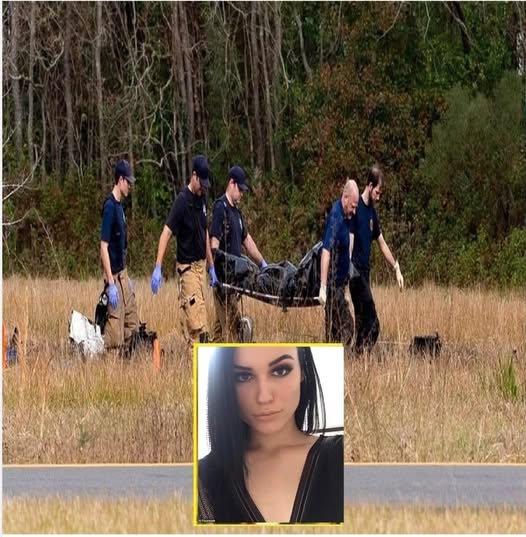
A tragedy unfolded in Adelaide that would leave a lasting scar not only on one family but on the wider community of South Australia. A father, entrusted with the role of protector and guide, became the cause of a devastating loss when his 20-year-old daughter, Sabrina, died during a private altercation. This event, described by the courts as a catastrophic breach of trust, has since become a sobering reminder of the fragility of family bonds and the urgent need for accessible mental health and conflict resolution support.
This week, the South Australian Supreme Court delivered its final verdict. Justice Trish Kelly sentenced 49-year-old Petrit Lekaj to life in prison, with a non-parole period of 20 years. The ruling ensures he will not be eligible for parole until 2039, and even then, freedom will not erase the weight of his actions or the grief that continues to ripple through those who knew and loved Sabrina.
The story began with what seemed like a routine evening. Petrit and Sabrina left their home to pick up food, but tensions simmering beneath the surface soon escalated beyond control. The court heard that the weeks leading up to the tragedy had been marked by growing disagreements between father and daughter. Sources close to the family spoke of disputes about lifestyle choices, independence, and personal direction—issues that, though common in many households, became flashpoints in the Lekaj family dynamic. What happened during that car ride was irreversible. The altercation, fueled by emotional volatility and unresolved conflict, ended Sabrina’s young life and destroyed the trust between parent and child. Justice Kelly described the act as a catastrophic breach of the parent-child bond, words that echo the profound loss felt not only by Sabrina’s mother, Romina, but also by friends, classmates, and the community at large.
During sentencing, Justice Kelly struck a balance between legal severity and human tragedy. She emphasized that the bond between parent and child is supposed to be unbreakable, a foundation of security and unconditional support. To violate that trust in such an extreme manner, she noted, was both emotionally devastating and socially significant. “The bond between a parent and a child is ordinarily fundamental,” Justice Kelly said. “When that bond is broken in such a tragic way, the impact on the family and the wider community is immeasurable.” Her remarks went beyond the legal dimensions of the case. They highlighted the contradictions in Petrit’s life: a father torn between his protective instincts, his personal struggles, and the destructive choices that overwhelmed his judgment on that night in 2019.
Outside the courtroom, the atmosphere was heavy with sorrow. Sabrina’s mother, Romina, left without speaking to reporters, her silence a testament to the immeasurable grief no words could capture. Friends and neighbors expressed disbelief, recalling the family as seemingly close-knit and engaged in everyday life. For many in Adelaide, the case was not only shocking because of its violence but also because it emerged from what appeared to be an ordinary family. The dissonance between the outward image and the tragic reality sparked wider conversations about how unresolved tensions and unspoken emotional struggles can spiral into irreversible outcomes.
Sabrina was just 20 years old, a student at the University of Adelaide, with dreams that blended creativity and compassion. Friends described her as ambitious, bright, and full of energy, someone whose life was only beginning to unfold. Social media became a platform for classmates and peers to share memories, tributes, and words of support for her grieving family. Her story, though marked by tragedy, has since become symbolic—a reminder of how quickly life can change, and how essential it is to nurture empathy, understanding, and open communication within families.
The case has forced both professionals and community members to reflect on what could have been done differently. Psychologists and counselors stress that while disagreements between parents and children are natural, failing to manage them constructively can create dangerous escalation. Key lessons have emerged. Parents and children must learn to pause when emotions intensify and find ways to de-escalate before conflicts spiral. Counseling and therapy provide neutral spaces to resolve long-standing tensions. South Australia offers organizations such as Lifeline, Headspace, and Relationships Australia to support families struggling with emotional challenges.
Although the legal process has concluded, the journey toward healing is ongoing. For the Lekaj family, the grief will never fully fade. For the community, however, Sabrina’s memory has become a catalyst for awareness and advocacy. Local groups have organized forums and discussions, urging families to prioritize communication, emotional intelligence, and conflict resolution. By creating open dialogue between parents and young adults, the hope is to prevent similar tragedies from happening in the future.
This deeply tragic case is more than a legal matter—it is a stark reminder of the fragility of trust and the devastating consequences when it is broken. Justice may provide closure in one sense, but true healing requires accountability, empathy, and a collective commitment to learning from the past. Families everywhere are encouraged to reach out for help early, to talk openly, and to recognize the weight that unresolved conflict can carry. By honoring Sabrina’s memory with compassion and reflection, communities can turn grief into a force for building stronger, more supportive bonds in the future.
